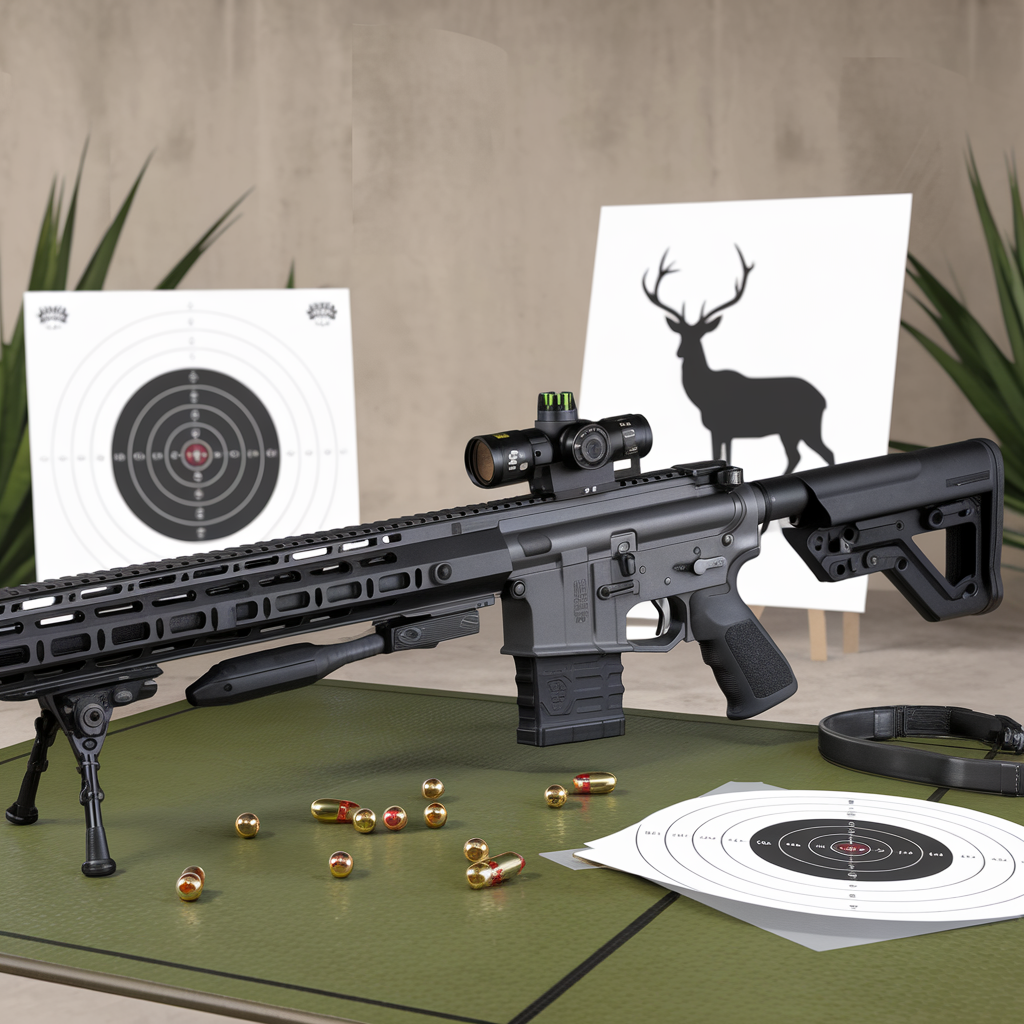How to Train for Precision Shooting Competitions

Precision shooting competitions test your accuracy, consistency, and focus under challenging conditions. Whether you’re new to the sport or an experienced marksman looking to refine your skills, proper training is essential. In this guide, we’ll explore how to train for precision shooting competitions, covering techniques, gear, and mental preparation to help you hit your targets with confidence.
Understand the Fundamentals of Precision Shooting
The foundation of precision shooting lies in mastering the basics. Before advancing your skills, it’s crucial to develop proper form and technique. Focus on the following:
- Grip: Ensure a firm but relaxed grip that minimizes recoil impact and allows for consistent control.
- Stance: Practice a stable shooting position, whether standing, kneeling, or prone. Your stance should reduce unnecessary body movement while maintaining comfort.
- Trigger control: Learn to squeeze the trigger smoothly to avoid jerking the firearm and disrupting your aim.
- Sight alignment: Align your sights accurately and focus on your target to achieve repeatable precision.
These fundamentals provide the backbone of your training and are critical for success in competitions.
Practice Dry Fire Drills
Dry fire practice involves using your firearm without live ammunition. This method allows you to develop muscle memory and refine your technique without the distractions of recoil or noise. Key benefits of dry fire drills include:
- Improving trigger control and sight alignment.
- Developing consistency in your shooting form.
- Building confidence with your firearm’s mechanics.
To get started, set up targets in a safe, controlled environment, and practice slow, deliberate trigger pulls while maintaining proper sight alignment. Incorporate props like barricades or shooting bags if your competition involves positional shooting.
Range Time: Live Fire Practice
Live fire practice is a crucial component of precision shooting training. It allows you to test your skills under realistic conditions and make adjustments as needed. When practicing at the range, focus on the following:
- Zeroing your rifle: Confirm that your rifle is properly zeroed at the desired distance for your competition.
- Group shooting: Fire multiple shots at a single target to evaluate consistency and identify areas for improvement.
- Range estimation: Practice estimating target distances if your competition does not allow rangefinders.
- Shooting positions: Work on transitioning between different positions, such as standing to prone.
Consistency is key during live fire sessions. Track your progress to ensure steady improvement over time.
Equip Yourself with the Right Gear
Having reliable and accurate equipment can significantly enhance your performance in precision shooting competitions. Here’s a checklist to consider:
- Firearm: Use a rifle or pistol suited to the competition you are entering. Bolt-action rifles are popular for precision rifle matches.
- Optics: A high-quality scope with appropriate magnification is essential for long-range shooting.
- Ammunition: Use ammunition that suits your firearm and has been tested for accuracy and consistency.
- Support equipment: Invest in bipods, shooting bags, or tripods to stabilize your shots.
- Rangefinder or ballistic calculator: If permitted, these tools make scope adjustments more precise.
Ensure your gear is well-maintained and tested before competition day to avoid malfunctions or surprises.
Develop Your Mental Focus
Mental preparation is just as important as physical training in precision shooting. These strategies can help sharpen your focus:
- Visualization: Picture yourself executing perfect shots under competition conditions to build confidence.
- Stress management: Practice controlling your breathing and staying calm during high-pressure moments.
- Routine: Establish a pre-shot routine to keep your mind focused and eliminate distractions.
Competitive shooting often involves time constraints and varying scenarios, so train under similar conditions to strengthen your mental resilience.
Simulate Match Conditions
To prepare for a precision shooting competition, it’s essential to train in environments that mimic real match scenarios. Here are a few ways to simulate match conditions:
- Practice timed drills to improve your ability to perform under pressure.
- Incorporate positional shooting with improvised supports like barriers or ladders.
- Join local matches or informal practice events to become familiar with competition dynamics.
Simulating match conditions not only prepares you for the physical demands of competition but also helps reduce anxiety when the stakes are high.
Track Your Training Progress
Keep a detailed log of your practice sessions to track improvement and identify weaknesses. Include information such as:
- Shot group sizes and patterns.
- Environmental conditions like wind and lighting.
- Adjustments made to your gear or technique.
Reviewing this log regularly allows you to fine-tune your training regimen and measure your growth as a shooter.
Safety First
Safety should always be your top priority when training for precision shooting competitions. Follow these essential guidelines:
- Always keep your firearm pointed in a safe direction.
- Ensure your firearm is unloaded when not in use.
- Wear appropriate eye and ear protection at all times.
- Follow all range rules and regulations.
Prioritizing safety not only protects you and others but also sets an example of responsible firearm ownership for the shooting community.
Conclusion
Training for precision shooting competitions requires a balance of technical skill, mental preparation, and proper gear. By focusing on fundamentals, incorporating dry and live fire practice, and simulating match conditions, you can build the confidence and consistency needed to succeed. Stay dedicated to safety and continuous improvement, and you’ll be well on your way to achieving your competition goals.
Ready to refine your skills even further? Check out more training tips and gear reviews on 2AGun.com to stay prepared and informed.



